
September 9, 2025
Apple Watch Series 11 offers new sleep features (American Academy of Sleep Medicine)
May 16, 2025
First FDA-cleared blood testing device to aid in diagnosing Alzheimer’s disease
The Lumipulse G pTau217/ß-Amyloid 1-42 Plasma Ratio, cleared for marketing by the United States Food and Drug Administration, is “the first in vitro diagnostic device that tests blood to aid in diagnosing Alzheimer’s disease” (emphasis in red added by us; FDA, 2025).
The FDA clearance of this test is for (FDA, 2025; emphasis in red added by us):
1. “Adult patients, aged 55 years and older“
2. “exhibiting signs and symptoms of the disease.”
About the prevalence of Alzheimer’s disease, the FDA’s news release noted that (FDA, 2025):
– Alzheimer’s disease is present in 10% of people aged 65 and older, and
– The prevalence is expected to DOUBLE by 2050!
Source: FDA Clears First Blood Test Used in Diagnosing Alzheimer’s Disease (link)
The following article, for our Members (subscribers) only, explains what this blood test is and exactly how it should be used:
First FDA-cleared blood testing device to aid in diagnosing Alzheimer’s disease
March 14, 2025
Brexanolone (Zulresso®) withdrawn from the US market
Brexanolone (Zulresso®) has been withdrawn from the market by the manufacturer, and the FDA has withdrawn its approval of this medication, effective April 14, 2025 (source).
February 24, 2025
The FDA is removing the clozapine REMS program and the requirement to report the ANC to pharmacies
The United States Food and Drug Administration announced on February 24, 2025, that starting today, the FDA “does not expect prescribers, pharmacies, and patients to participate in the risk evaluation and mitigation strategies (REMS) program for clozapine or to report results of absolute neutrophil count (ANC) blood tests before pharmacies dispense clozapine.”
But severe neutropenia will remain in the Boxed Warnings in the Prescribing Information for clozapine.
And, the FDA recommends that patients’ ANC continue to be monitored as described in the Prescribing Information.
Why has the FDA made this change? The FDA’s announcement notes that: “Eliminating the REMS is expected to decrease the burden on the health care delivery system and improve access to clozapine.”
What next? According to the FDA’s announcement: “In the coming months, FDA will work with the clozapine manufacturers to update the prescribing information and eliminate the Clozapine REMS.”
Source: Information on Clozapine (FDA)
January 21, 2025
FDA approves expanded indication for esketamine nasal spray (Spravato®) as monotherapy
The FDA has approved the expanded use of esketamine nasal spray (Spravato®) as monotherapy, with the updated wording of its Indications and Usage being as follows (emphasis in red below was added by us):
SPRAVATO is a non-competitive N-methyl D-aspartate (NMDA) receptor antagonist indicated for the treatment of:
- Treatment-resistant depression (TRD) in adults, as monotherapy or in conjunction with an oral antidepressant.
- Depressive symptoms in adults with major depressive disorder (MDD) with acute suicidal ideation or behavior in conjunction with an oral antidepressant.
Limitations of Use:
- The effectiveness of SPRAVATO in preventing suicide or in reducing suicidal ideation or behavior has not been demonstrated. Use of SPRAVATO does not preclude the need for hospitalization if clinically warranted, even if patients experience improvement after an initial dose of SPRAVATO.
- SPRAVATO is not approved as an anesthetic agent. The safety and effectiveness of SPRAVATO as an anesthetic agent have not been established.
Sources:
1. SPRAVATO® (esketamine) approved in the U.S. as the first and only monotherapy for adults with treatment-resistant depression (link)
2. Spravato® Prescribing Information (link)
December 20, 2024
FDA Approves First Medication for Obstructive Sleep Apnea
The FDA has approved tirzepatide injections (Zepbound®) “for the treatment of moderate to severe obstructive sleep apnea (OSA) in adults with obesity, to be used in combination with a reduced-calorie diet and increased physical activity.”
Source: FDA Approves First Medication for Obstructive Sleep Apnea (link)
For our Members (subscribers) only:
Tirzepatide (Zepbound®) for obstructive sleep apnea (OSA)
December 10, 2024
Updated Practice Guideline on the Treatment of Borderline Personality Disorder
Source: American Psychiatric Association Publishes Updated Practice Guideline on the Treatment of Borderline Personality Disorder (link)
November 15, 2024
Flexibilities around the prescribing of controlled substances via telemedicine have been extended
The Drug Enforcement Administration (DEA), jointly with the United States Department of Health and Human Services (HHS) has extended the current flexibilities around telemedicine prescribing of controlled substances till December 31, 2025.
Source: DEA and HHS Extend Telemedicine Flexibilities through 2025 (link)
September 26, 2024
Combination medication approved for the treatment of schizophrenia
The US Food and Drug Administration announced on September 26, 2024, that it has approved a combination pill—xanomeline plus trospium (Cobenfy™) for the treatment of schizophrenia in adults.
This combination medication is receiving a lot of attention because, unlike all previous medications for the treatment of schizophrenia, it does not bind to dopamine receptors and appears not to cause extrapyramidal side effects.
Xanomeline is an agonist at muscarinic receptors.
Trospium is an antagonist at muscarinic receptors.
Why are two drugs with opposite receptor effects being combined? If xanomeline alone is given, the patient will have cholinergic effects not only in the brain but also peripherally in the rest of the body.
Trospium is an anticholinergic medication that has been available for a long time as a treatment for overactive bladder. Trospium doesn’t cross the blood-brain barrier but is intended to block the peripheral cholinergic effects of xanomeline to reduce cholinergic side effects.
Here is a link to the FDA’s announcement: FDA Approves Drug with New Mechanism of Action for Treatment of Schizophrenia)
Here is a link to the Prescribing Information for Cobenfy™.
For our Members (subscribers) only:
The rationale for xanomeline+trospium (Cobenfy™), approved for the treatment of schizophrenia
Efficacy of xanomeline+trospium (Cobenfy™) and comparison with second-generation antipsychotics
Xanomeline+trospium (Cobenfy™): Side effects
August 4, 2023
New oral medication approved for postpartum depression
A new medication was approved today by the United States Food and Drug Administration (source: FDA press release). The medication is zuranolone (brand name Zurzuvae®).
Zuranolone is the first oral medication that is specifically FDA-approved for the treatment of postpartum depression in adults.
What’s the big deal?
1. We have been treating postpartum depression with oral medication all along, but until now, none of them had a specific FDA indication for the treatment of postpartum depression.
2. Zuranolone is completely different in its pharmacological effect from currently available oral antidepressants (SSRIs, SNRIs, bupropion, and so on).
3. It is intended to be used for only 14 days.
For a brief summary of key facts about zuranolone, please see the following article on this website:
Zuranolone (Zurzuvae™): Key facts
May 11, 2023
Another indication approved for brexpiprazole
Today, the FDA approved another indication for brexpiprazole (Rexulti®): “Treatment of agitation associated with dementia due to Alzheimer’s disease“. This is the first time that any treatment has been approved by the FDA for this indication.
It is important to note that the FDA indication includes the following “Limitations of Use” (emphasis in red added by us): “REXULTI is not indicated as an as needed (“prn”) treatment for agitation associated with dementia due to Alzheimer’s disease”.
The FDA’s announcement of this approval is available at this link.
The Prescribing Information for brexpiprazole (Rexulti®) is available at this link.
May 3, 2023
From the DEA on May 3, 2023:
We recognize the importance of telemedicine in providing Americans with access to needed medications, and we have decided to extend the current flexibilities while we work to find a way forward to give Americans that access with appropriate safeguards. For this reason, last week, DEA, in concert with the Department of Health and Human Services, submitted a draft Temporary Rule to the Office of Management and Budget entitled “Temporary Extension of COVID-19 Telemedicine Flexibilities for Prescription of Controlled Medications.” Further details about the rule will become public after its full publication in the Federal Register.
February 17, 2023
The US Food and Drug Administration (FDA) has approved a once-daily formulation of deutetrabenazine (Austedo XR®), which is expected to become available later in 2023.
For basic information about deutetrabenazine, please see the following article on this website:
Deutetrabenazine (Austedo®): Basic Information
January 6, 2023
The United States Food and Drug Administration (FDA) announced (LINK) today that it has approved lecanemab (Leqembi™) for the treatment of the mild cognitive impairment or mild dementia stage of Alzheimer’s disease.
Lecanmab is an antibody against amyloid beta. It is to be administered as an intravenous injection every two weeks.
The Prescribing Information for lecanemab (Leqembi™) is available at the following LINK.
January 4, 2023
The U.S. Department of Health and Human Services announced that SAMHSA (Substance Abuse and Mental Health Services Administration) has released the results of its 2021 National Survey of Drug Use and Health (NSDUH).
The survey results are available at the following LINK.
Highlights of the findings are available at this LINK. Here are just a few of the findings about people in the United States:
Mental illness
– About 23% of adults had a mental illness during the previous year.
– About 20% of adolescents had a major depressive episode in the previous year.
Suicidal thoughts and behavior
– About 13% of adolescents and about 5% of adults had serious thoughts of suicide in the previous year.
– About 3.5% of adolescents and about 0.7% of adults had a suicide attempt in the previous year.
Binge drinking of alcohol
– 60 million people engaged in binge drinking of alcohol in the previous month.
– Not surprisingly, the percentage of past month binge drinkers was highest in those aged 18 to 25 years.
Other substance use
– Also not surprisingly, marijuana was the most commonly used illicit drug.
– About 3% of people aged 12 or older (about 9 million people) misused opioids (heroin or prescription opioid medications) in the previous year.
January 3, 2023
US News and World Report has released its report and rankings for Best Diets Overall 2023.
The report is available at this LINK.
The Mediterranean Diet was ranked #1.
August 23, 2022
The United States Food and Drug Administration (FDA) has approved a combination of dextromethorphan (45 mg) and bupropion (105 mg) under the brand name Auvelity™ for the treatment of major depressive disorder (MDD) in adults.
This combination product is the first oral N-methyl D-aspartate (NMDA) receptor antagonist approved for the treatment of major depressive disorder (MDD) in adults. Note: Esketamine nasal spray (Spravato®) is also an N-methyl D-aspartate (NMDA) receptor antagonist that has FDA indications for treatment-resistant depression (TRD) in adults and depressive symptoms in adults with major depressive disorder (MDD) with acute suicidal ideation or behavior.
– Dextromethorphan is an NMDA receptor antagonist and sigma-1 receptor agonist.
– Bupropion prolongs the action of dextromethorphan by inhibiting CYP450 2D6, which metabolizes dextromethorphan. This leads to MUCH higher and sustained levels of dextromethorphan, which are needed for the central nervous system effects.
In clinical trials, treatment with dextromethorphan-bupropion was associated with statistically significantly greater improvement in depression symptoms compared to placebo starting as early as one week into the treatment.
The commonest side effects of dextromethorphan-bupropion (occurring in 5% or more of patients and at least twice the rate of placebo) were: dizziness, headache, diarrhea, somnolence, dry mouth, sexual dysfunction, and hyperhidrosis.
This combination product was developed by Axesome Therapeutics and is expected to be available in US markets in the fourth quarter of 2022. For more information, please see the Auvelity™ Prescribing information.
March 26, 2022
Does anybody want Adderall? This article in The Wall Street Journal made me concerned.
Startups Make It Easier to Get ADHD Drugs. That Made Some Workers Anxious
#ADHD #psychiatry #mentalhealth #SimpleandPractical
March 18, 2022
Today, the American Psychiatric Association (APA) released the first “Text Revision” of DSM-5. It is called the Diagnostic And Statistical Manual of Mental Disorders, Fifth Edition, Text Revision (DSM-5-TR).
February 21, 2022

This week is National Eating Disorders Awareness Week. Widespread screening for eating disorders is needed because so many people with an Eating disorder go undiagnosed. Let’s encourage everyone to use the National Eating Disorders Association (NEDA) Online Confidential Screening Tool at the link below. NEDA notes that “this screening tool is not diagnostic, but evaluates thoughts & behaviors that may be associated with eating disorders. Local resources are generated for each user.”
https://www.nationaleatingdisorders.org/screening-tool
January 12, 2022
The U.S. Food and Drug Administration (FDA) issued a warning today about dental problems that have been reported with medicines containing buprenorphine with formulations that are dissolved in the mouth.
What kinds of problems? The dental problems reported included tooth decay, cavities, oral infections, and even loss of teeth.
Whom do they occur in? These dental problems have been reported even in persons with no past history of dental problems.
“The buprenorphine medicines that are associated with dental problems are tablets and films dissolved under the tongue or placed against the inside of the cheek. They are available as single-ingredient products and also in combination with naloxone. Buprenorphine medicines are marketed under the brand names Belbuca, Bunavail, Cassipa, Suboxone, Subutex, and Zubsolv. They are also available as generics.”
“…recommending that prescribers refer patients to dental care services and encourage them to have regular checkups while taking these products.”
“Patients using buprenorphine medicines dissolved in the mouth should take extra steps to help lessen the risk of serious dental problems. After the medicine is completely dissolved, take a large sip of water, swish it gently around your teeth and gums, and swallow. You should wait at least 1 hour before brushing your teeth to avoid damage to your teeth and give your mouth a chance to return to its natural state. Inform your health care professional if you have a history of tooth problems, including cavities. Schedule a dentist visit soon after starting this medicine and inform your dentist that you are taking buprenorphine, and schedule regular dental checkups while taking this medicine. Your dentist can customize a tooth decay prevention plan for you. Notify both your health care professional and your dentist immediately if you experience any problems with your teeth or gums.”
FDA Drug Safety Communication. FDA warns about dental problems with buprenorphine medicines dissolved in the mouth to treat opioid use disorder and pain.
January 10, 2022
The United States Food and Drug Administration (FDA) has approved daridorexant, brand name Quviviq™ (press release). Daridorexant is an orexin receptor antagonist.
Its FDA indication is for “the treatment of adult patients with insomnia characterized by difficulties with sleep onset and/or sleep maintenance” (Prescribing Information).
January 1, 2022
The No Surprises Act is now in effect
Anyone can read our article explaining what this Act requires of mental health clinicians:
The No Surprises Act made as simple as possible
December 27, 2021
Generic nefazodone is available again according to the Food and Drug Administration website. See the screenshot below.

December 20, 2021
Intra-Cellular Therapies, the manufacturer of lumateperone (Caplyta®) announced that the United States Food and Drug Administration (FDA) has approved lumateperone for the treatment of depressive episodes associated with bipolar I or II disorder (bipolar depression) in adults—as monotherapy and as adjunctive therapy with lithium or valproate (emphasis added).
The announcement is at this link.
For more information about this medication, please see the following article on this website:
Lumateperone (Caplyta®): Basic information
November 20, 2021

Five years ago this day—on November 20, 2016—we sent out our very first daily email with a high-yield, advanced set of tips on a topic in psychopharmacology. Since then, every single day— 365 days a year, 1826 days in a row without missing a single day—our Members have been receiving powerful strategies to better help their patients.
Simple and Practical Mental Health is now read by thousands of mental health clinicians all around the world. What is amazing is that our Membership has grown to this level almost entirely by word-of-mouth, with virtually no advertising! We are truly grateful to our Members for telling colleagues about how unique and helpful our service is to their clinical work and for encouraging their colleagues to join. Thank you so much!
A special thank you to those of you who have posted reviews on our website at https://simpleandpractical.com/reviews. The reviews are mind-blowing and inspire us to work even harder to deliver the best possible service to you.
To those of you who are in the United States, we wish you and your families a Happy Thanksgiving!
Raj
Rajnish Mago, MD Editor, Simple and Practical Mental Health
April 2, 2021
The United States Food and Drug Administration (FDA) has approved a new medication for the treatment of ADHD in pediatric patients 6 to 17 years old—viloxazine extended-release (brand name Qelbree®). Viloxazine is a selective norepinephrine reuptake inhibitor, just like atomoxetine (brand name Strattera®), which has been available for a long time as a treatment for ADHD.
Simple and Practical Medical Education has summarized the basic information about this medication at the following link:
Viloxazine extended-release capsules (Qelbree™): Basic information
October 22, 2020
New Practice Guideline from the American Psychiatric Association
In case you have not heard already, the American Psychiatric Association’s Practice Guideline for the Treatment of Patients with Schizophrenia, Third Edition (2021), has now been published in its final form. It can be downloaded for free as a PDF by both members of the APA and others at THIS LINK.
October 1, 2020
ABPN makes Pilot Project for Maintenance of Certification permanent
The American Board of Psychiatry and Neurology (ABPN) announced today that the “Article Assessment Pathway” that was being tried out as a “Pilot Project” for three years starting in 2019 has been approved as a permanent alternative to the 10-year Continuing Certification (CC/MOC) examination for meeting the CC/MOC Part III program requirements.
Details of the Maintenance of Certification Program (MOC) are available at this link and details of the Pilot Project are available at this link.
September 23, 2020
The United States Food and Drug Administration (FDA) has announced that for all benzodiazepines, the “boxed warning” will now have to include the potential risks of “abuse, misuse, addiction, physical dependence and withdrawal.”
Similarly, changes to other sections of the official Prescribing Information (Warnings and Precautions, Drug Abuse and Dependence, Patient Counseling Information) will also be required. Lastly, revisions to the Medication Guide that pharmacies give to the patient when dispensing a benzodiazepine will also be required. As of today, the actual wording of the required updates is not publicly available.
It is not clear to me what the actual impact of these new changes required by the FDA will be.
The FDA’s “News Release” about this is available HERE and its “Drug Safety Communication” about this is available HERE.
April 29, 2020
Visual-spatial learning disorder is more common than was previously thought.
https://medicalxpress.com/news/2020-04-visual-spatial-disorder-common-thought.html
March 17, 2020
During the COVID-19 crisis, Medicare will TEMPORARILY pay for telehealth services
Coverage by Medicare
So far, Medicare would only pay for telemedicine care for established patients, that is, a patient who has been seen at least once by that clinician, and in certain situations, e.g., for patients living in rural areas. Also, patients had to travel to a local medical facility to get telehealth services and could not receive telehealth services in their homes.
Frequently Asked Questions about this announcement are answered at the following link: https://www.cms.gov/files/
Prescription of controlled substances
The Controlled Substances Act contains certain exceptions to the requirement to conduct an in-person medical examination for prescribing a controlled substance through telemedicine. For example, that requirement is waived when the Secretary of Health and Human Services declares a public health emergency. On January 31, 2020, the Secretary of Health and Human Services did declare such a public health emergency. The DEA website now notes that “For as long as the Secretary’s designation of a public health emergency remains in effect, DEA-registered practitioners may issue prescriptions for
controlled substances to patients for whom they have not conducted an in-person medical evaluation” (source)
Telepsychiatry: Your questions answered
A comparison of telepsychiatry platforms
October 16, 2019
It’s OCD Awareness Week!
Every year, the second full week in October is celebrated as OCD Awareness Week. Click on the link below to see all the events the International OCD Foundation is organizing this year. #OCDweek
https://iocdf.org/programs/
October 8, 2019
Oasis 2019 Psychiatry Conference
Delivered three lectures—two on bipolar disorders and one on pharmacogenomic testing—at the Oasis 2019 psychiatry conference in San Diego last week, which was attended by over 500 psychiatrists. All three lectures were very well received, and the amazing thing was that I was answering questions outside the conference room for well over one hour after the talks on bipolar disorder ended. Clearly, bipolar disorders continue to be very challenging to treat!
September 30, 2019
International Summit on MAOIs
“Was honored to be invited to deliver a lecture in Mumbai, India, last month about practical aspects of how exactly to prescribe MAO inhibitors.
MAO inhibitors have not been available in India so far, but tranylcypromine is being introduced later this year. I’m so glad that psychiatrists in India will finally have the option to consider this important medication in their patients who don’t respond to other commonly used antidepressants. Meanwhile, I am concerned that many psychiatrists in the USA feel that they were not given enough training about MAO inhibitors to be able to prescribe them when needed. This is just one of the many dozens of areas of advanced psychopharmacology that simpleandpractical.com provides help with.”
September 23, 2019
Weight Stigma Awareness Week starts today
#NEDAwareness
September 10, 2019
Five horrifying statistics about suicide
1. Suicide is among the top 10 causes of death in the US (Centers for Disease Control and Prevention, 2017).
2. For adolescents and young adults (10- to 34-year-olds), it is the second most common cause of death (Centers for Disease Control and Prevention, 2017).
3. Of the 10 top causes of death, death from suicide did NOT decrease over the last many years (from 2005 to 2017) even though it decreased for ALL the other nine.
4. Instead, the suicide rate in the US has INCREASED nearly 30% since 1999 (Centers for Disease Control and Prevention).
5. Over 47,000 people died by suicide in the US in 2017, up from about 41,000 in 2013.
June 21, 2019
FDA approves a new medication for a subgroup of women with hypoactive sexual desire disorder
The U.S. Food and Drug Administration announced today that it has granted approval of bremelanotide (brand name Vyleesi™) to AMAG Pharmaceuticals for treatment of acquired, generalized hypoactive sexual desire disorder (HSDD) in premenopausal women.
A key point to note is that this is a subcutaneous injection to be used on an as-needed basis. It will be available in an autoinjector and the medication would be injected subcutaneously at least 45 minutes before sexual activity is anticipated.
The full wording of the FDA indication is as follows (emphasis added):
“VYLEESI is a melanocortin receptor agonist indicated for the treatment of premenopausal women with acquired, generalized hypoactive sexual desire disorder (HSDD) as characterized by low sexual desire that causes marked distress or interpersonal difficulty and is NOT due to:
– A co-existing medical or psychiatric condition,
– Problems with the relationship, or
– The effects of a medication or drug substance.”
The Prescribing Information also notes:
“Limitations of Use:
– Not indicated for treatment of HSDD in postmenopausal women or in men.
– Not indicated to enhance sexual performance.”
Note that the FDA indication is for “hypoactive sexual desire disorder (HSDD)” that is “acquired” and “generalized.” Let’s clarify what these terms mean.
What is hypoactive sexual desire disorder (HSDD)?
HSDD is a DSM-IV diagnosis (now subsumed in DSM-5 under “Female Sexual Interest/ Arousal Disorder“) that is characterized by low sexual desire that is associated with marked distress and interpersonal problems and NOT associated with a co-existing medical or psychiatric condition, problems within the relationship, or the effects of a medication or other substance.
What is “acquired” HSDD?
The FDA-approved Prescribing Information says that “Acquired HSDD refers to HSDD that develops in a patient who previously had no problems with sexual desire.” This is not correct as stated. Actually, it is not that the woman can never have had problems with sexual desire in the past. “Acquired” means that the problem has not been lifelong, that is, present since the woman became sexually active. Instead, the woman had at least some period of time during which she had relatively normal desire and THEN she developed this low desire.
What is “generalized” HSDD?
Generalized HSDD is HSDD that occurs irrespective of the type of sexual activity, situation, or partner.
How is bremelanotide to be administered?
Bremelanotide can be self-administered by injecting under the skin of the abdomen or thigh at least 45 minutes before anticipated sexual activity.
Patients should not administer bremelanotide more than once per 24 hours or more than eight times per month. If no improvement in sexual desire is experienced after 8 weeks of treatment, patients should discontinue treatment.
What are its potential side effects?
Nausea and vomiting, flushing, injection site reactions, and headache are the most common side effects associated with bremelanotide. Nausea was reported by about 40% of patients and 13% needed medications for the treatment of nausea.
Other side effects include darkening of the gums and part of the skin, especially in patients with dark skin, and increase in blood pressure after dosing which usually resolves in 12 hours.
The FDA’s announcement about the approval of bremelanotide (Vyleesi™) is available HERE.
The full Prescribing Information for bremelanotide (Vyleesi™) is available HERE.
April 11, 2019
Women taking “the Pink Viagra” can now drink (with precautions)
The FDA has modified the safety warning regarding alcohol use in patients taking flibanserin (brand name Addyi®).
Flibanserin is an FDA-approved medication for the treatment of premenopausal women with acquired,
generalized hypoactive sexual desire disorder (see https://simpleandpractical.com/flibanserin-addyi/). The media has sometimes referred to it as the “Pink Viagra.”
Before the change: Cases of severe hypotension and syncope had been reported when flibanserin and alcohol were taken together. So, when flibanserin was first approved by the FDA in 2015, it carried a boxed warning stating that alcohol must be avoided by women taking flibanserin. The clinician prescribing the flibanserin was required to counsel the patient, using a Patient-Provider Agreement Form, about the increased risk of severe hypotension and syncope and about the importance of not drinking alcohol while taking flibanserin. The pharmacist was also required to counsel the patient about not drinking alcohol while taking flibanserin.
After the change: The FDA has said that the product label should be changed “to clarify that there is still a concern about consuming alcohol close in time to taking Addyi but that it does not have to be avoided completely.”
According to the FDA’s press release (linked to below), postmarketing trials showed that “the risk of severe hypotension and syncope was reduced when women who consumed up to two alcoholic drinks waited at least two hours before taking Addyi.”
The FDA’s press release notes that “women should discontinue drinking alcohol at least two hours before taking Addyi at bedtime or to skip the Addyi dose that evening. Women should not consume alcohol at least until the morning after taking Addyi at bedtime.”
https://www.fda.gov/NewsEvents/Newsroom/PressAnnouncements/ucm635847.htm
March 20, 2019
Editor: Brexanolone (Zulresso®) was subsequently withdrawn from the market by the manufacturer, and the FDA withdrew its approval of this medication as of April 14, 2025 (source).
First drug approved by the FDA specifically for postpartum depression
Wow! Two new drugs approved by the US Food and Drug Administration (FDA) for depressive disorders in the same month! What is even more interesting is that both of these have pharmacological effects that are different from the antidepressants that we have been prescribing for decades. On March 5, 2019, the FDA had announced the approval of esketamine (brand name Spravato). Yesterday, the FDA announced the approval of brexanolone (brand name Zulresso) injection for intravenous use for the treatment of postpartum depression.
Note that this is the first medication that has been approved by the FDA specifically for the treatment of postpartum depression.
What is so special about brexanolone? Not that it is more effective than other antidepressants, but that it works very quickly–in just a couple of days–so that, if it works, the mother could potentially be back quickly with her baby and with less or no depression.
One limitation is that brexanolone will have to be given as a continuous intravenous infusion over 60 hours, that is, 2.5 days. Also, just like esketamine, brexanolone will also carry a Boxed Warning and will have to be prescribed through a special Risk Evaluation and Mitigation Strategy (REMS) program. What this means is that it will only be available at health care facilities that have been specifically certified through the brexanolone REMS program, and the patient’s information will have to be registered with the REMS program before the treatment is given. Why? Why is a special REMS program needed? Because there is a concern that excessive sedation or sudden loss of consciousness can occur while the intravenous injection of brexanolone is being given. Because of this risk, patients will have to be carefully monitored during the infusion, and continuous pulse oximetry monitoring will have to be done (which is easy to do, of course). Also, while the infusion is being given, the mother will have to be supervised while interacting with her children.
Other than possible sedation and loss of consciousness, other side effects reported with brexanolone were dry mouth and flushing.
Subscribers to Simple and Practical Mental Health will receive brief summaries about what brexanolone is, how it works, how well it works, and so on.
FDA approves first treatment for post-partum depression
March 5, 2019
FDA approves esketamine nasal spray (brand name Spravato) for “treatment-resistant depression”
The U.S. Food and Drug Administration (FDA) announced today that it has approved esketamine nasal spray (brand name Spravato) for marketing in the US. Here are some basic details about this medication:
– What is esketamine? It is one of the two enantiomers in the medication ketamine, which has been available in the US since 1970 and is FDA-approved for use as a general anesthetic.
– Esketamine nasal spray is approved for the treatment of major depressive disorder in persons who have taken other antidepressant medications but have not benefited from them, so-called “treatment-resistant depression.”
– It is approved not for monotherapy but for adjunctive use along with an oral antidepressant medication.
– It is approved for use in adults only
– Not everyone will be able to prescribe esketamine nasal spray. Similar to medications like clozapine and flibanserin, esketamine nasal spray will only be available by prescription from clinicians registered under a Risk Evaluation and Mitigation Strategy (REMS) program. This is because serious adverse events can occur due to sedation and dissociation caused by esketamine and due to the potential for abuse.
– The manufacturer of Spravato is Janssen Pharmaceuticals, Inc., a division of Johnson & Johnson.
– Members of Simple and Practical Mental Health will receive a detailed review of this medication, the research behind, the potential risks, and so on.
The FDA’s announcement is available at the link below:
https://www.fda.gov/NewsEvents/Newsroom/PressAnnouncements/ucm632761.htm
The full Prescribing Information is available at the link below:
http://www.janssenlabels.com/package-insert/product-monograph/prescribing-information/SPRAVATO-pi.pdf
Disclosure: Dr. Mago bought some J&J stock (less than $7000 worth) and, as in almost all his investments, has lost money on it! 🙂 He does not have any other association, financial or otherwise, with Janssen Pharmaceuticals, Inc, or its parent company, Johnson & Johnson.
Feb 13, 2019
Esketamine nasal spray is on the verge of being approved by the FDA
The FDA’s Psychopharmacologic Drug Advisory Committee and Drug Safety and Risk Management Advisory Committee have voted in favor of approving esketamine nasal spray (brand name Spravato) for approval to treat major depressive disorder that not responded to other treatments. The exact wording of the indication will be announced if the drug is approved. What also remains to be seen is what special precautions or Risk Evaluation and Mitigation Strategy (REMS) the FDA will require. The FDA’s decision is expected on March 4, 2019, but the FDA usually follows the advice of its advisory committees. For details of the announcement and for the full document that was presented to the committees, see the links below:
https://www.jnj.com/fda-advisory-committee-recommends-approval-of-spravatotm-esketamine-nasal-spray-ciii-for-adults-with-treatment-resistant-depression
https://www.fda.gov/downloads/AdvisoryCommittees/CommitteesMeetingMaterials/Drugs/PsychopharmacologicDrugsAdvisoryCommittee/UCM630970.pdf
Related Pages
Clinically-relevant news in mental health (2018)
Clinically-relevant news in mental health (2017 and earlier)
What are the BEST books on each topic related to psychiatry/ mental health?
Copyright © 2019 to 2025, Simple and Practical Medical Education, LLC. All rights reserved. The content on this website may not be reproduced in any form without express written permission.
Disclaimer: The material on this website is provided as general education for medical professionals. It is not intended for patients or other laypersons, nor is it a substitute for medical advice, diagnosis, or treatment. Patients must always consult a qualified healthcare professional regarding their diagnosis and treatment. Healthcare professionals should always check this website for the most up-to-date information.
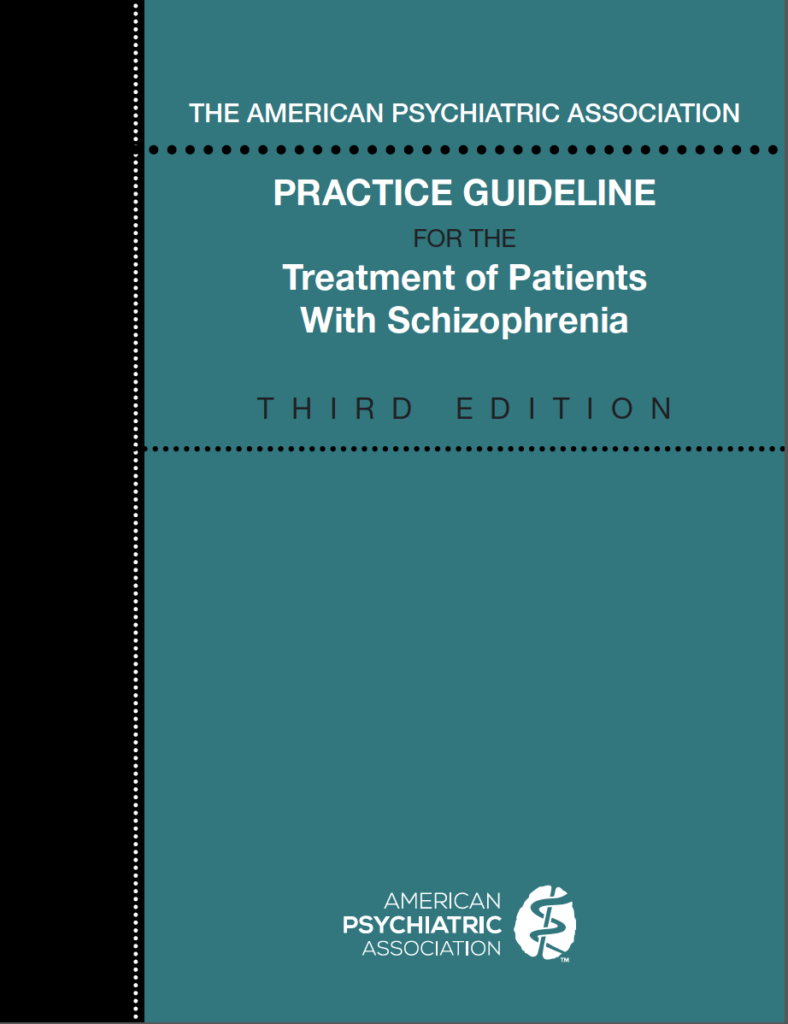
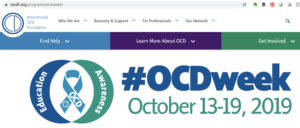
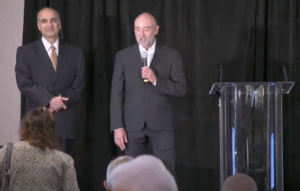

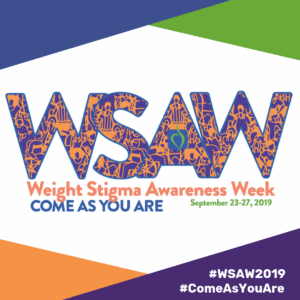

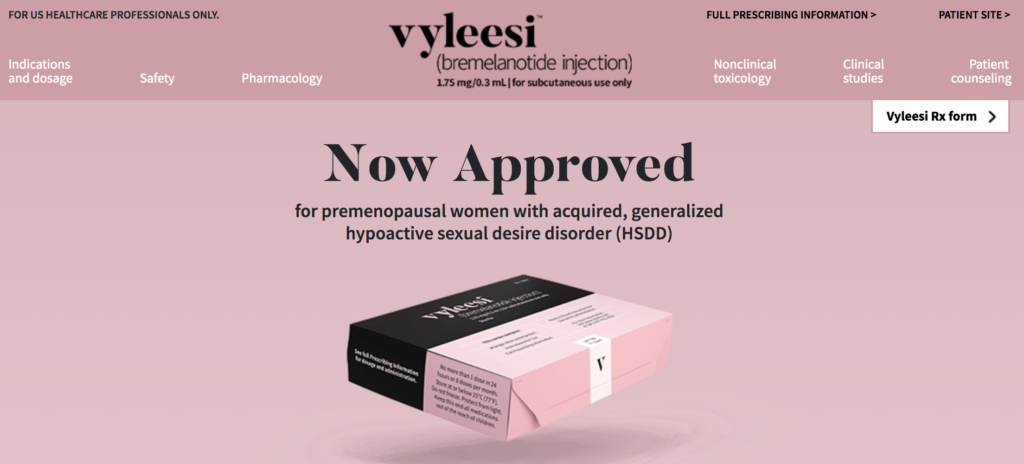
[…] https://simpleandpractical.com/news/ […]